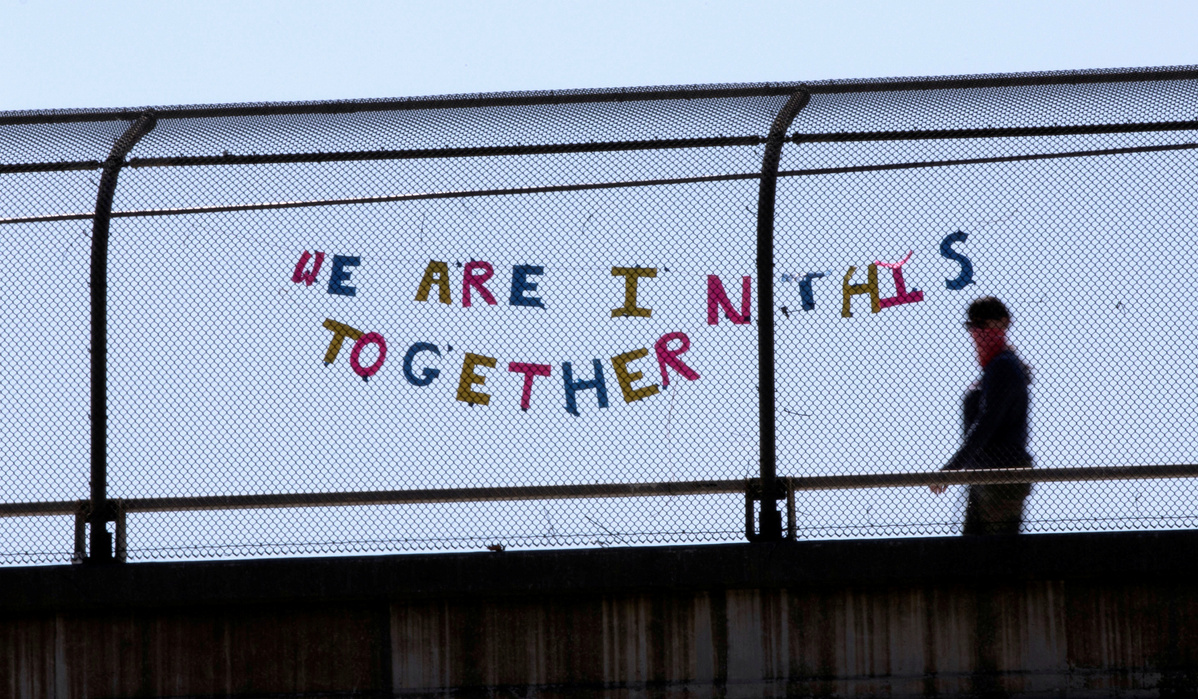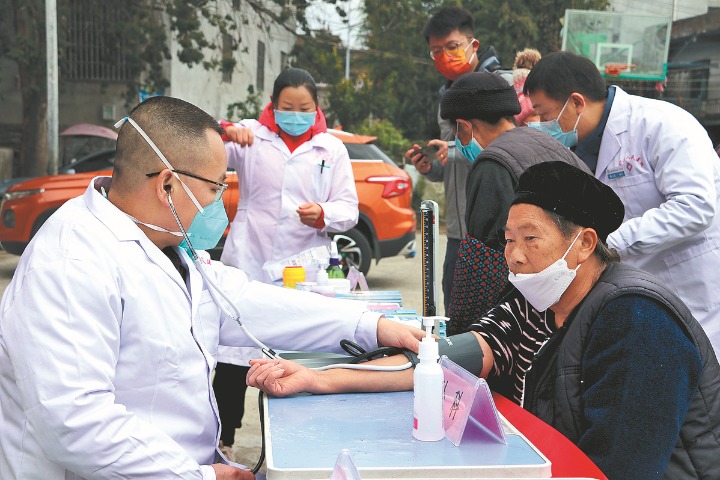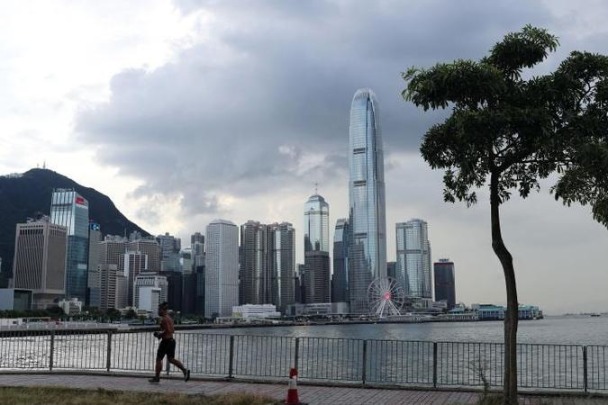Experts share lessons learned from COVID-19 responses in webinar

Public health experts from China, Japan, Singapore, South Korea and the US discussed experiences and lessons learned from the front-line responses to COVID-19 on Friday.
The panelists at the webinar convened by The John L. Thornton China Center at the Brookings Institute called for close collaboration globally to fight against the pandemic.
"If we take this opportunity to cooperate and coordinate rather than to blame, shift and close ourselves off to cooperation (on COVID-19), we have the chance to come out stronger. We have the chance to become a stronger world through international cooperation," said John R Allen, president of the Brookings Institute.
"We need to launch a global effort to find new drugs, antibodies and vaccines that are (not just) optimal for this virus, but also for this lineage of beta-coronavirus because the next pandemic may not be exactly from this coronavirus," said David Ho, world-renowned HIV/AIDS researcher and director of the Aaron Diamond AIDS Research Center Vagelos College of Physicians and Surgeons at Columbia University.
"China has just gone through a very dark moment. However with the (pandemic) still spreading throughout the world, I think we should work together to fight the disease and I hope that...our experience as a first wave can be shared by other countries," said Zhang Wenhong, director of Huashan Hospital's department of infectious disease and of the Shanghai panel overseeing the treatment of COVID-19.
Experts from China, South Korea, Japan and Singapore shared what has worked to combat this pandemic in their own countries.
Xue Lan, professor at the School of Public Policy and Management at Tsinghua University, provided an overview of how China has been responding to the outbreak of COVID-19.
China started by identifying the risks and trying to make sense of it.
"There seemed to be efforts by the local government (in Hubei) to downplay the significance of events...however as soon as the behavior of (COVID-19) was recognized, there was a very quick movement by national health authorities to report on cases of the virus," said Xue.
Zhang said the key to stopping the spread of disease is early control in local transmission. He said the Shanghai CDC has been able to trace every patient and suspected cases.
"We do the test for every suspected patient we found without charging money. So, everything is free. We do it very quickly, so this helps us to timely find these people and quarantine the suspected cases and quarantine the close contacts," said Zhang.
The timely diagnoses and timely quarantine measures in Shanghai have been effective to stop the circulation of COVID-19 in the city. Zhang said, "This activity did not cause an overall impact on normal citizens' lives because we quarantined every suspected case we found and none of them spread disease further in our community."As a result, Shanghai had enough medical resources to treat just several hundred cases and the mortality rate in Shanghai was only 1 percent.
Zheng Junhua, vice-president of the First People's Hospital, Shanghai Jiaotong University, shared what has been learned about protecting medical personnel dealing with COVID-19.
Previously there were about 386 teams and a total of more than 40,000 medical professionals fighting against the virus in Hubei. Now close to 40,000 of them have returned to their homes and none of them were infected by COVID-19, according to Zheng.
"We have always focused on how to prevent infection among our healthcare workers. We have made a set of contingency plans for occupational exposure," said Zheng.
Soonman Kwon, professor and former dean at the School of Public Health at Seoul National University, said at the beginning of the outbreak there were discussions on whether testing on a massive scale was needed.
"It turns out that mass-scale testing is quite an effective mechanism to find the (COVID-19) cases, isolate the cases, and treat infected people," said Kwon.
Kenji Shibuya, professor and director at the University Institute for Population Health at King's College London, said "the trust of patients, healthcare professionals, and society as a whole in government is of paramount importance for meeting a healthcare crisis."
Vernon Lee, director for Communicable Diseases at the Singapore Ministry of Health, said that instead of reacting to current information about COVID-19, Singapore worked with modelers to try to project what might happen over the next couple of weeks if nothing is done, so as a result a lot of Singapore's actions were anticipatory.
The experts suggest a proactive response for counties suffering from COVID-19 outbreaks.
"I think that the problem is that many of the regions in the US are not proactive. They are only reactive when problems appear. Their attitude is that this is someone else's problem, yet the virus spares no one," said Ho.
"I believe it is very important for the government to put out mandatory requirements to wear masks in public spaces. For the general public, the masks should only be surgical masks and not N-95 masks...which should be left for front-line medical workers," said Zheng.
Yi Zong in Washington contributed to the story.
Please feel free to contact us by sending your questions to question@chinadaily.com.cn or commenting on China Daily app. We will ask experts to answer them.














